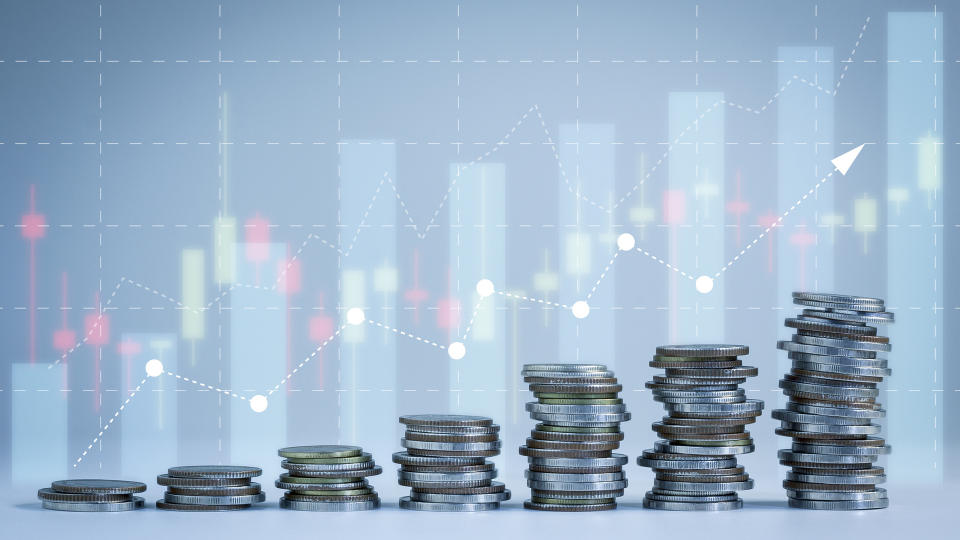The Truth About High-Yield Savings Accounts and Inflation

On the face of it, putting your money in a high-yield savings account that pays 4% interest looks like a losing proposition when the inflation rate is running at 5% or higher. That’s true to a point, though it doesn’t necessarily tell the whole story about why high-yield savings can still be a good investment during periods of high inflation.
See: Here’s How Much Money Experts Say You Should Have in Your Savings Account If You’re in Your 50s
Related: How To Build Your Savings From Scratch
First, the bad news: High inflation definitely poses a threat to the value of your savings account — no matter how much interest it pays. Even with a relatively high annual percentage yield, you might find that inflation outpaces your interest earnings. If the inflation rate is higher than the interest rate tied to your account, your funds are losing real value over time.
A recent GOBankingRates analysis of the best high-yield savings accounts for May 2023 found that most of the accounts paid APYs of 3.75% to 4.1%, with a high of 4.76%. Those are all excellent rates compared to the national average savings rate of 0.40% as of May 15, according to the latest FDIC data.
But even the highest APY is still below the 4.9% overall inflation rate recorded in April 2023 — and that was the lowest 12-month increase in two years. No matter how you crunch the numbers, when your APY is lower than inflation, you are not making financial headway.
On the other hand, earning an APY of 4% or higher might give you a better return than other investment vehicles. For example, the S&P 500 lost 18.11% in 2022 when you include the return from dividends, Forbes reported. If you had your money in a high-yield savings account instead of the S&P 500 last year, you would have come out way ahead.
The index has recovered to report a 7.73% gain so far in 2023, MarketWatch reported. But there’s always the chance that stocks could turn south again — especially in an environment where the markets remain nervous about the debt-ceiling crisis and the threat of recession.
In contrast, savings accounts pose no risk of losing money, and high-yield savings accounts at least give you a chance to earn decent returns. This is an especially good time to open a high-yield savings account because the Federal Reserve has spent the last year or so raising interest rates to battle inflation.
When the Fed hikes rates, banks typically increase interest rates on their savings accounts, the Wall Street Journal reported earlier this year.
If you lock those high rates in now, your APY might end up outpacing the inflation rate by the end of 2023. As the WSJ noted, the Fed has projected that the rate of inflation could fall to 3.1% by the close of the year. This means your 4% APY could soon serve the purpose of helping you earn money rather than simply protect it.
Take Our Poll: Are You Concerned About the Safety of Your Money in Your Bank Accounts?
I’m a Financial Planning Expert: Here Are 5 Things You Should Never Spend Money on If You Want To Be Rich
“The tide could be turning,” Scott Tiras, at wealth advisor at Houston-based Tiras Wealth Management, told the Wall Street Journal.
More From GOBankingRates
This article originally appeared on GOBankingRates.com: The Truth About High-Yield Savings Accounts and Inflation

 Yahoo Finance
Yahoo Finance 